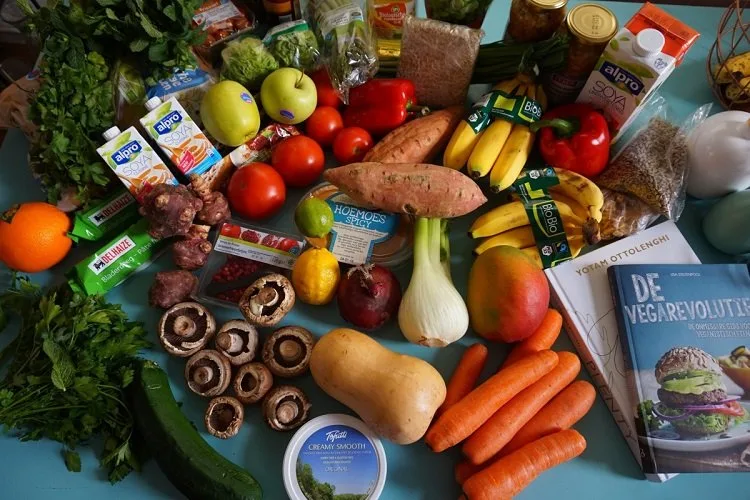As of May 19, 2020, there have been more than 4.8 million cases of COVID-19 infection worldwide. It’s a global health crisis. The majority of cases are mild, but COVID-19 can still lead to serious health issues.
You can reduce the risk of infection by maintaining your health and practicing good hygiene. Keep COVID-19 at bay by following these tips:
1. Hygiene

Practicing proper hygiene is one of the most effective ways to prevent infection. All it takes are these simple steps:
- Regular handwashing
Wash your hands with antibacterial soap and water for 20 seconds. Rub your hands together and get rid of any dirt underneath your nails. Then, dry your hands using a fresh paper towel. Doing so ensures that your hands are free of bacteria.
- Face touching
The Centers for Disease Control has urged people to avoid touching their eyes, nose, and mouth. Most people have a habit of touching their faces throughout the day, and it’s a hard habit to break.
The CDC’s advice is even more crucial for contact lens wearers. If you wear contact lenses, that means you touch your eyes more often than the average person. There is no correlation between contact lens wear and COVID-19, but touching your face often can make you more susceptible to infection.
Take care of your eyes and avoid infection by practicing proper contact lens care and safety.
- Home cleaning
Coronavirus can live on certain surfaces for up to five days, so make it a point to disinfect surfaces at home. Disinfect surfaces that you touch on a daily basis. This includes tables, chairs, kitchen countertops computers, keyboards, doorknobs, and even light switches.
To ensure complete disinfection, use bleach-based or alcohol-based disinfectants. For maximum disinfection, don’t wipe the solution right after you apply it. Let it stay on the surface for a few minutes.
2. Diet

A healthy diet is an essential aspect of preventing COVID-19 infection. The food you eat has a direct impact on the strength of your immune system and its ability to fight infections.
The World Health Organization (WHO) has these recommendations for a healthy diet.
- Eat fresh fruits and vegetables every day.
- Eat whole grains such as wheat or rice as well as legumes such as beans and lentils.
- Limit your consumption of salt to five grams per day.
- Minimize your sugar intake. Limit your consumption of fizzy drinks, processed fruit juices, and sweet snacks.
- Stay hydrated. Drink clean water throughout the day instead of sugary drinks.
3. Alcohol intake
It’s best to curb your intake of alcoholic drinks. Alcohol does not prevent infection. Alcohol intoxication also leads to impaired judgment.
Furthermore, excessive alcohol consumption can result in serious health issues. These include liver cancer, heart disease, and high blood pressure.
If you do drink alcohol, keep it to a minimum.
4. Drug abuse
People with past or current substance abuse problems are likely to have weaker immune systems. Therefore, they are at greater risk of COVID-19 infection.
Those with a history of substance abuse must strictly follow the CDC’s guidelines on COVID-19 prevention. Doing so will help greatly minimize their risk of infection. Those who are undergoing treatment for substance abuse during the pandemic need to keep in contact with their healthcare provider or doctor. It’s crucial that they learn the quarantine policies in their area to ensure that they can continue to get treatment and keep themselves as safe from the virus as possible.
People with substance abuse problems who experience any COVID-19 symptoms should seek medical attention immediately. Their compromised immune system means they are more likely to serious effects.
If you don’t have a history of substance abuse, then it’s best to keep it that way. Don’t start abusing drugs as a way to cope with fear, stress, anxiety, loneliness as a result of the pandemic. Drug abuse will only lead to more harmful effects and prevent you from protecting yourself against the virus.
5. Mental health

The quarantine can be mentally taxing. Adapting to self-isolation is challenging for most people, but it is even more stressful for anyone with mental health conditions. Keep in mind that while your physical health is important, you should also prioritize your mental health.
There’s no question that it’s difficult to adjust to the lifestyle changes brought on by the quarantine. However, there are ways to make it easier on yourself.
Here are a few helpful tips:
- Establish a routine.
Try your best to stick to a daily routine that is similar to your activities before the quarantine. This will bring a sense of normality back to your life, which will then lessen your stress.
Your routines don’t have to be complicated. It can be as simple as waking up and going to bed at the same time each day. You can also follow a schedule for exercising or do other activities that make you feel positive emotions.
- Stay connected.
Social distancing policies are in place in many countries, but that doesn’t mean you can’t talk to people. Thanks to smartphones, computers, and the Internet, it’s as easy as ever to reach out to people no matter where they are in the world.
Talk to your friends and family members on a regular basis. Ask them how they’re doing and let them know how you are as well. Staying connected with the important people in your life will prevent you from feeling alone even though you’re in isolation.
- Focus on your mental health.
People who are being treated for any mental health condition need to continue their treatment despite the pandemic. For those taking prescribed medications, it’s critical that they also continue taking these medications. They need to make sure that they find a way to refill their prescriptions. They can consult with their providers regarding what options are available.
If you think you need to consult with a mental health professional, organizations and specialists in your area are likely available online or via phone.
6. Smoking
According to the WHO, smokers are much more vulnerable to COVID-19. They have a higher risk of contracting serious illnesses caused by the virus due to their reduced lung function.
If you are currently smoking, now is an ideal time to quit. Here are a few proven methods for managing your cravings for nicotine.
- The first thing you should do is consult your doctor. Tell them about your condition and ask for advice on how to quit smoking.
- Use nicotine replacement products such as nicotine patches, gums, or lozenges.
- Try individual or group counseling.
- Whenever you feel like smoking, delay the urge for as long as you can, and distract yourself. Do other productive things like cooking your next meal or exercising.
Conclusion
Data shows that the vast majority of COVID-19 cases result in only mild symptoms. That being said, COVID-19 is still a serious matter and should be considered as such. Don’t make the mistake of disregarding social distancing policies and thinking that you are in prime health and will never get infected.
Since there is neither a cure nor a vaccine for COVID-19 at the moment, proactive prevention is the only way to avoid infection. You can fend off the virus by:
- Practicing proper hygiene;
- Eating a healthy diet;
- Avoiding alcohol consumption;
- Avoiding drug abuse;
- Prioritizing your mental health;
- Quitting smoking.
 Jericho Gonzales is a Content Marketing Specialist at Lens.com. Writing is his passion, and he specializes in tech-based and consumer product-based writing. His other passions lie in the worlds of fantasy and science fiction. When he isn’t busy with wordcraft, he loves to immerse himself in those worlds through novels, video games, TV shows, or movies.
Jericho Gonzales is a Content Marketing Specialist at Lens.com. Writing is his passion, and he specializes in tech-based and consumer product-based writing. His other passions lie in the worlds of fantasy and science fiction. When he isn’t busy with wordcraft, he loves to immerse himself in those worlds through novels, video games, TV shows, or movies.
